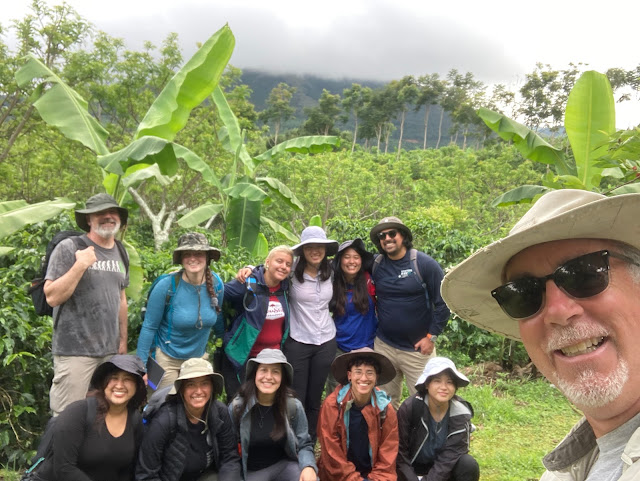Research in Mastatal: Arthropod diversity in farmland and forests

We spent a productive and adventuresome week in the small rural village of Mastatal (pop. 150) carrying out a research project in the shadow of La Cangreja National Park. Our research project, which is a follow-up of a project we conducted in the same sites nearly 20 years ago, explores the relative contribution of farmland and forests to arthropod biodiversity. This means we spent six days setting pitfall traps, characterizing ground and canopy cover, and collecting, sorting, photographing and measuring the body sizes of beetle and spider specimens from several sites around the region. Specimens will be sent to colleagues who are taxonomic specialists in San Jose for further identification, and we'll be using special software to analyze the photographs we have taken, measuring body and leg sizes of the beetles and spiders in order to better understand traits like mobility and predator size as potential drivers of the abundance and diversity patterns we are seeing. River crossing...



